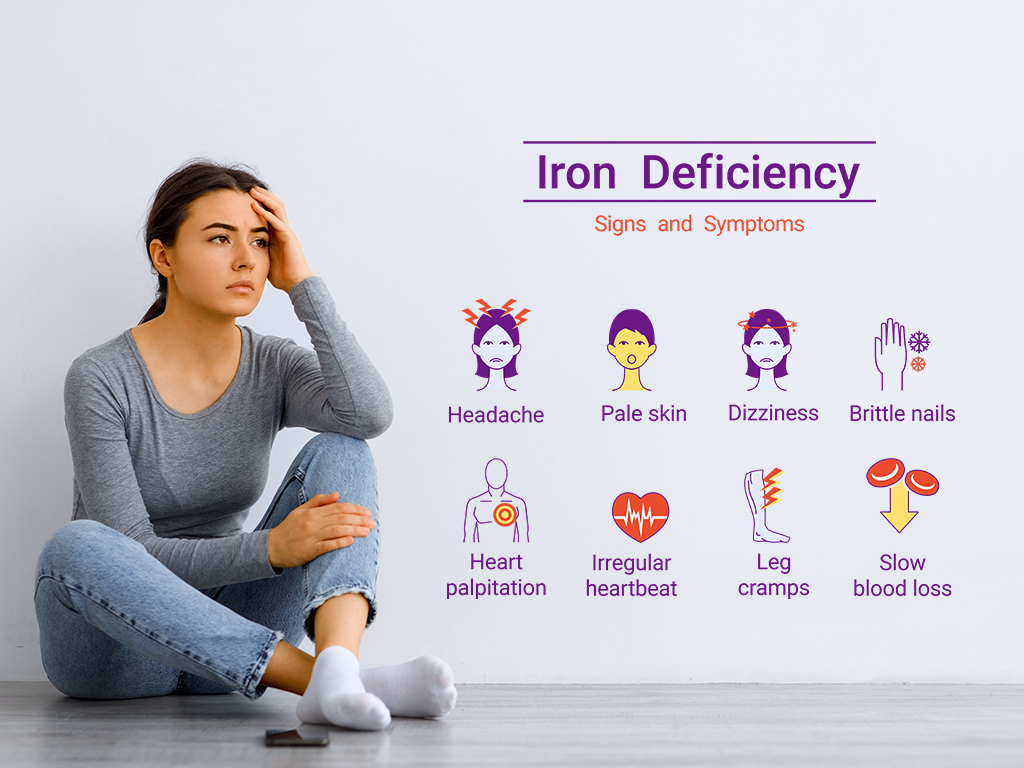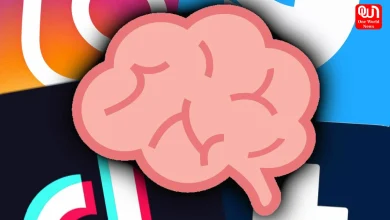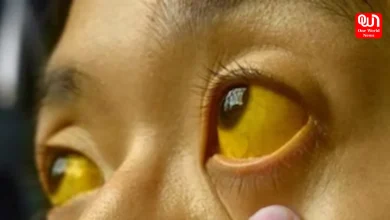What happens to your body when you have iron deficiency? Know the signs and symptoms
Explore the subtle signals of iron deficiency – from persistent fatigue to cravings – in our comprehensive guide. Prioritize your well-being!
Unlocking the Secrets of Iron Deficiency: Unraveling Signs and Symptoms

Iron deficiency can be a silent threat to our well-being, impacting various aspects of our health from energy levels to cognitive function. It’s crucial to recognize the early signs and symptoms, as timely intervention can prevent the development of severe health complications. In this article, we will delve into the intricate web of indicators that your body might be signalling when grappling with iron deficiency.
Read more: Weight loss surgery is more effective in controlling hypertension rates: Study
Signs and Symptoms of Iron Deficiency
Fatigue: The Silent Sentinel
One of the most prevalent and early indicators of iron deficiency is persistent fatigue and weakness. Despite having sufficient rest, individuals may find themselves grappling with unrelenting tiredness. This fatigue is rooted in reduced haemoglobin levels, impairing the blood’s ability to efficiently transport oxygen throughout the body. Recognizing this silent sentinel can be the key to addressing iron deficiency before it takes a toll on overall health.
Pale Skin and Nails: A Visual Clue
A pallid complexion, especially noticeable in facial features, lips, and nail beds, serves as a visual clue to decreased haemoglobin levels. Diminished oxygenation of tissues and organs results in this paleness, making it a prominent sign of iron deficiency. Understanding this visual indicator can prompt individuals to seek medical attention and initiate necessary interventions.
:max_bytes(150000):strip_icc()/symptoms-of-iron-deficiency-5188449-V1-8373d720093241b993bc13816e3fb63c.png)
Shortness of Breath: When Oxygen Becomes Elusive
Iron deficiency can lead to reduced oxygen-carrying capacity in the blood, causing shortness of breath, particularly during physical exertion or strenuous activities. When the body lacks the necessary iron to facilitate proper oxygen transport, individuals may find themselves struggling to breathe. Recognizing this symptom can be crucial in determining the root cause and addressing the underlying iron deficiency promptly.
Headaches and Dizziness: The Mind-Body Connection
Headaches and dizziness often accompany iron deficiency, stemming from vascular changes and impaired oxygen delivery to the brain. This can be particularly noticeable when standing up quickly. Understanding the mind-body connection in these symptoms is essential, as it emphasizes the holistic impact of iron deficiency on overall well-being.
Read more: The perfect guide to good dental health for children!
Cold Hands and Feet: Circulation Compromised
Another physical manifestation of iron deficiency is cold extremities, such as hands and feet, even in warm environments. Reduced blood oxygenation due to insufficient iron levels impairs circulation, leading to this uncomfortable sensation. Recognizing this sign can prompt individuals to explore the possibility of iron deficiency and seek appropriate medical guidance.
Dry Hair and Brittle Nails: External Reflections of Internal Imbalance
Iron deficiency not only affects internal processes but also manifests externally in the form of dry, brittle hair and nails. These external reflections of internal imbalance highlight the impact of inadequate iron levels on the health and strength of hair follicles and nail beds. Paying attention to these external cues can contribute to a comprehensive understanding of iron deficiency.
Urge to Move Legs: Unraveling Restless Legs Syndrome
Restless legs syndrome, characterized by an uncontrollable urge to move the legs, especially at night, can be a manifestation of iron deficiency. This condition not only disrupts sleep patterns but also has implications for overall well-being. Recognizing this symptom can lead to a deeper exploration of iron levels and targeted interventions.
Concentration Issues: The Cognitive Toll
Iron deficiency can take a toll on cognitive function, leading to difficulty concentrating and memory problems. Adequate iron levels are crucial for optimal brain function, and recognizing the impact of iron deficiency on cognitive abilities is vital for overall well-being and productivity.
Craving for Non-Food Items: Pica and Immune Susceptibility
Intriguingly, iron deficiency can lead to cravings for non-food substances, a condition known as pica. This phenomenon is a red flag for insufficient iron levels and may also increase susceptibility to infections and illnesses due to iron’s role in supporting a healthy immune system. Recognizing these cravings can prompt individuals to seek medical attention and address the underlying iron deficiency.
We’re now on WhatsApp. Click to join.
Conclusion
Understanding the signs and symptoms of iron deficiency is a crucial step toward maintaining overall health and well-being. From the silent sentinel of fatigue to the external reflections in hair and nails, our body communicates its needs. Recognizing these signals and seeking timely intervention can prevent iron deficiency from evolving into more serious health complications, emphasizing the importance of maintaining adequate iron levels for a thriving and balanced life.
Like this post?
Register at One World News to never miss out on videos, celeb interviews, and best reads.








